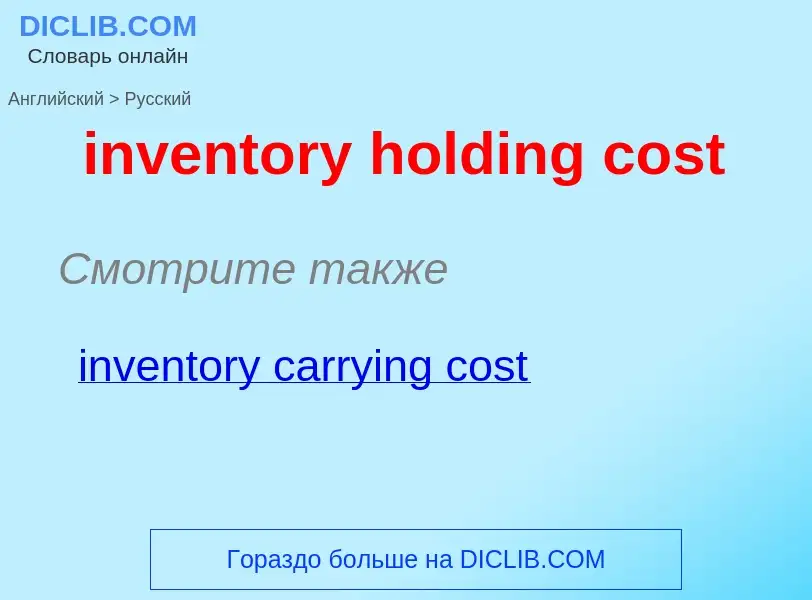Translation and analysis of words by ChatGPT artificial intelligence
On this page you can get a detailed analysis of a word or phrase, produced by the best artificial intelligence technology to date:
- how the word is used
- frequency of use
- it is used more often in oral or written speech
- word translation options
- usage examples (several phrases with translation)
- etymology
inventory holding cost - translation to English
Смотрите также
бухгалтерский учет
издержки владения (затраты, связанные с владением каким-л. активом (напр. недвижимостью и т. п.); включают налоги на данный актив, расходы по его страхованию, поддержанию в надлежащем порядке и т. п.)
Definition
Wikipedia
Vendor-managed inventory (VMI) is an inventory management practice in which a supplier of goods, usually the manufacturer, is responsible for optimizing the inventory held by a distributor.
Under VMI, the retailer shares their inventory data with a vendor (sometimes called supplier) such that the vendor is the decision-maker who determines the order size, whereas in traditional inventory management, the retailer (sometimes called distributor or buyer) makes his or her own decisions regarding the order size. Thus, the vendor is responsible for the retailer's ordering cost, while the retailer usually acquires ownership of the stock and has to pay for their own holding cost. One supply chain management glossary identifies VMI as
The practice of retailers making suppliers responsible for determining order size and timing, usually based on receipt of retail POS and inventory data.
although a 2008 article notes that there is no standard definition of VMI and the term's usage varies "significantly" among companies supporting VMI processes.
A third-party logistics provider may also be involved to help ensure that the buyer has the required level of inventory by adjusting the demand and supply gaps.

